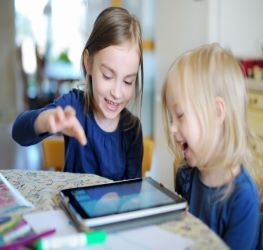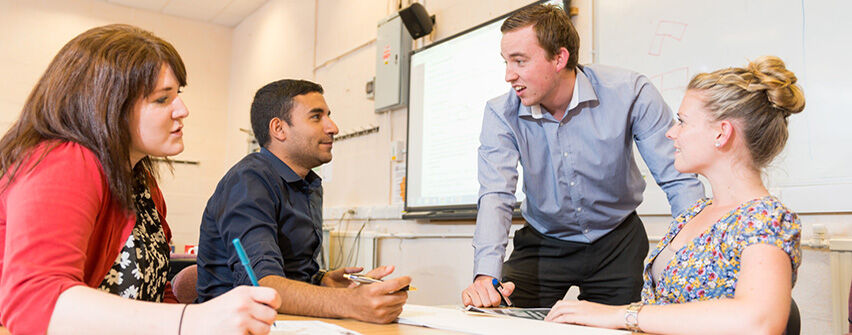The vast majority of young children in England today have been immersed in a digital environment since they were born. They play on and watch interactive digital devices such as tablets and smart phones, they watch on demand streaming channels such as Netflix and engage with digital content on YouTube/YouTubeKids. We know that digital media engagement has both positive and negative outcomes for children, so is now the time to seriously consider providing the very youngest children with age-appropriate media education in Early Years settings in order to equip them with the cognitive, practical and emotional tools they will need to navigate their relationship with the metaverse as they grow up?
There is now an endless stream of children’s content available on on-demand channels such as Netflix and DisneyPlus, as well as on YouTubeKids and traditional TV channels. In addition to this, Apps designed to teach children key skills such as reading or numeracy, and games and entertainment Apps for children of all ages from birth continue to multiply with little regulation as to their educational content or quality. There is also evidence that pre-school children are beginning to engage with social media - TikTok videos are a current favourite - along with the established activities of young children enjoying family snaps of Facebook and connecting with relatives and friends on zoom or facetime (Livingstone & Blum-Ross, 2020).
Of course the amount of content and platforms available for pre-schoolers to watch and engage with is irrelevant without access to digital devices and this is also on the rise among 0-5 year olds (OFCOM 2021).
Concerns have been raised about the unregulated and unlimited amount of media content that is flowing into the lives and minds of the very youngest of children (Burroughs 2017). Education around digital and on-line safety are now common in primary schools, but there has been little acknowledgement that pre-school children may also need education in order to engage safely with digital content and to understand the constructed, often commercial nature of what they are watching.
I recently led a small research project (O’Connor et al., 2022) exploring 3-5-year old’s viewing and understanding of child produced content on YouTubeKids, including the toy review channel Ryan’s World starring Ryan Kaji who is the most successful YouTuber in history and worth more than a billion dollars (Jaakkola 2021). We found that young children have no concept that their viewing choices are driven by algorithms and that they often aspire to have the lifestyles and wealth of the micro-celebrities they watch with little or no understanding that the videos are commercially produced and are not reflecting a child’s ‘real-life’. Research on older children and teenagers indicates that the consumption of such idealised versions of reality can impact on children’s career and life aspirations. For example, Papadatou (2019) found that 1 in 5 British children want a career as a social media influencer or YouTuber.
Social media use can also have serious implications for well-being and mental health as the child grows up. The rise of eating disorders among teenage girls and boys has been linked to unattainable images of perfection on Instagram and other social media platforms and increases in screen time have been associated with levels of anxiety and depression amongst children and teenagers (Wilksch, 2019). Physical problems, including obesity have also been associated with extended screen time and the lack of children’s outdoor play is a growing concern among educators, parents and health professionals (Mineshita et al., 2021).

The digital environment, or ‘metaverse’ as it becoming known, is already a huge part of young children’s lives and they will continue to navigate their role and position within it as consumers and producers of digital content as they move through childhood and into adulthood. As educators and parents we need to ensure that even the youngest children are provided with clear information, support and advice on how to engage with digital media safely and with an understanding of the commercial and ‘unreal’, constructed nature of much of what they view.
How this could be incorporated into Early Years settings is a question that urgently needs to be considered. To borrow bell hooks’ words on progressive pedagogies, it will need ‘fierce commitment’ to ensure media education becomes part of the provision for pre-school children. But to not take on this challenge would mean failing to prepare the very youngest in our society for the digital world into which they have been born.
References
Burroughs, B. (2017). YouTube Kids: The App Economy and Mobile Parenting. Social Media + Society 3(2).
Jaakkola, M. (2020). From vernacularized commercialism to kidbait: toy review videos on YouTube and the problematics of the mash-up genre. Journal of Children and Media, 14(2), 237-254.
Livingstone, S. & Blum-Ross, A. (2020). Parenting for a Digital Future: How Hopes and Fears about Technology Shape Children's Lives. Oxford: OUP
Mineshita, Y et al. (2021). Screen time duration and timing: effects on obesity, physical activity, dry eyes, and learning ability in elementary school children. BMC public health, 21(1), 422.
O’Connor, J, et al. (2022) Resisting hyperreality?: talking to young children about YouTube and YouTube Kids. Unpublished, currently under review.
OFCOM, UK (2021). Children and parents: media use and attitudes report. London: Office of Communication and Media.
Papadatou, A. (2019). 1 of 5 British children want a career as social media influencers. HRreview (on-line)
Wilksch, S.M. (2019). The relationship between social media use and disordered eating in young adolescents. International Journal of Eating Disorders. https://onlinelibrary.wiley.com/doi/abs/10.1002/eat.23198

